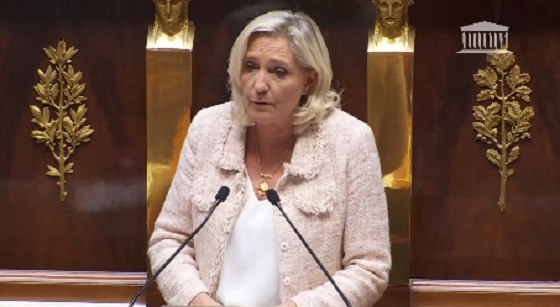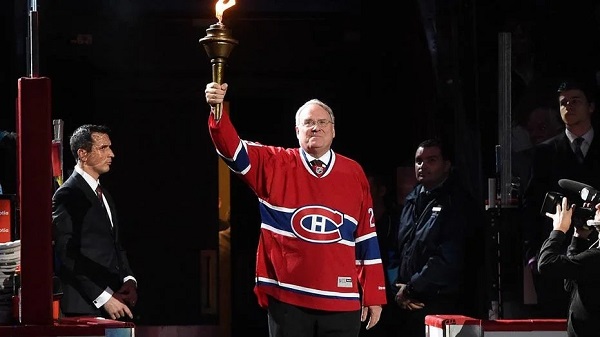armed forces
Canada unlikely to meet NATO commitments without significant debt accumulation
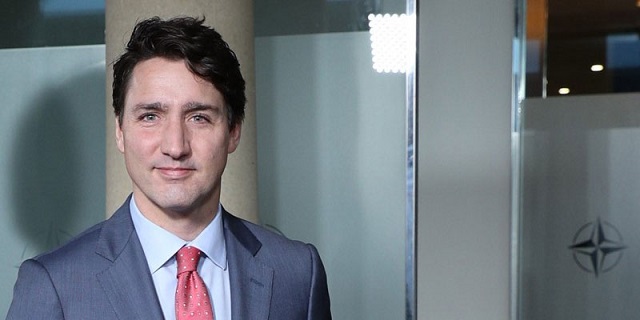
From the Fraser Institute
By Grady Munro and Jake Fuss
At this year’s NATO summit, held in Washington, D.C., Canada will undoubtedly face renewed pressure by our allies to increase defence spending to reach the alliance’s spending target of two per cent of gross domestic product (GDP)—a target that is increasingly viewed as the bare minimum. Despite recent increases to defence spending, the Trudeau government has yet to chart a course that gets Canada to two per cent, and it will be hard-pressed to do so without accumulating significantly more debt than what is already planned.
The days are long gone where Canada was simply one of many NATO members that failed to meet the alliance’s defence spending target, and we are now one of only eight countries that spends less than two per cent of GDP on defence. Indeed, NATO estimates we will spend 1.37 per cent of GDP on defence in 2024. Worse still, Canada is the only country that has not articulated a plan to reach that target by the end of the decade.
It is because of this that Canada has faced mounting pressure from our allies to release a plan that gets us to two per cent of GDP—with a recent example being a bipartisan letter sent to Prime Minister Trudeau from 23 U.S. senators, urging him to make good on our commitment.
In the face of this pressure, the Trudeau government recently released an updated defence policy, which commits an additional $8.1 billion over the next five years and $73.0 billion over the next 20 years, towards national defence. As a result of these new commitments it’s expected that Canada will spend 1.76 per cent of GDP on defence by 2029/30, which gets us closer to the NATO target but still ultimately falls short.
The problem facing the federal government is that, due to its own failures to responsibly manage the nation’s finances, Canada is currently in a weak fiscal position from which to increase defence spending.
During its time in office, the Trudeau government has demonstrated a complete lack of discipline regarding federal spending and debt accumulation. From 2015/16 to 2024/25, annual federal program spending (total spending minus debt charges) is expected to have increased nominally by $210 billion (76.7 per cent), which has resulted in ten consecutive budgetary deficits. These deficits have contributed to a $986.9 billion (89.4 per cent) increase in federal gross debt during the Trudeau government’s tenure.
It’s worth noting that the large majority of federal spending increases have gone towards programs and services other than national defence. Of the $210 billion in new annual spending since 2015, just 8.1 per cent ($17.1 billion) went to the defence budget.
Based on the latest federal budget, Canadians can expect much of the same fiscal mismanagement in the years to come. Indeed, over the next four years the Trudeau government plans to run deficits averaging $29.1 billion and accumulate an additional $400.1 billion in gross debt.
Due to the poor state of federal finances, the Trudeau government has little to no fiscal room with which to increase defence spending—unless of course, it chooses to fund new spending entirely using debt or cut spending in other areas. The government has already chosen the former to pay for its recent defence spending increases, given cumulative deficits from 2024/25 to 2027/28 are $44.7 billion higher in Budget 2024 than in Budget 2023, but continued debt accumulation comes at a cost to Canadians—largely in the form of high and increasing debt interest costs.
Despite recent increases, the Trudeau government still has yet to chart a course to spend two per cent of GDP on defence. But due to the government’s poor fiscal discipline, it will be hard-pressed to reach the target without significant debt accumulation.
Authors:
armed forces
Mark Carney says Canada will give ‘military assistance’ to Ukraine at taxpayer expense
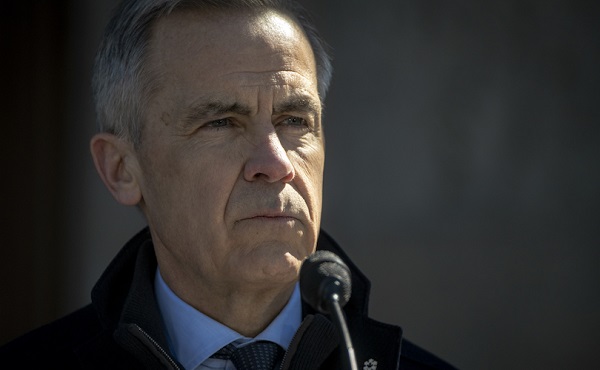
From LifeSiteNews
The prime minister’s office confirmed that Canada would commit to ‘direct and scalable military assistance’ in Ukraine when the war has calmed down.
The Canadian government under Liberal Prime Minister Mark Carney has made a promise for “military assistance” to Ukraine once a ceasefire is in place.
Carney made the comments after attending a recent virtual meeting for the “Coalition of the Willing” pro-Ukraine nations.
Late last week, Carney’s office confirmed that Canada would commit to “direct and scalable military assistance” in Ukraine when the war has calmed down.
At the “Coalition of the Willing” meeting, French President Emmanuel Macron said 26 allies of Ukraine promised to deploy their armed forces via land, sea, or air to the nation as a “reassurance force,” but not until the war with Russia is officially over.
Placing Canadian troops in Ukraine would come at a huge cost to Canadian taxpayers, who are already dealing with high inflation and high taxes.
The reality of the Ukraine war is grim. To date, it is estimated to have cost the lives of more than 1.5 million people.
Retired Col. Douglas Macgregor accused Western powers of sustaining a war built on illusion, not diplomacy.
From black-market weapons ending up with cartels to unchecked government corruption, Macgregor warned that U.S. aid is fueling chaos and not peace.
Critics of Canada’s support for Ukraine, such as from People’s Party of Canada (PPC) leader Maxime Bernier, have said Canada should not be involved in the Ukraine-Russia conflict.
He noted how politicians, including Carney and Canadian Conservative Party leader Pierre Poilievre, “standing” with the nation in an escalating war realistically means they support Ukraine’s eventual “destruction.”
armed forces
Poilievre vows to rebuild Canada’s military, replace ‘woke culture’ with ‘warrior culture’

From LifeSiteNews
The Conservative Party leader has pledged to increase military spending and re-emphasize ‘bravery, honour, patriotism and strength.’
Conservative Party leader Pierre Poilievre has promised to rebuild Canada’s military after years of “ideological extremism” under the Liberals.
In an August 16 open letter to serving Canadian Armed Forces (CAF) members at CFB Wainwright, Poilievre made 22 commitments to restore Canada’s military while ending the “woke culture” promoted by the Liberal government.
“After years of Liberal neglect, underfunding, and ideological extremism, our military is hollowed out. The world is becoming more dangerous, and our enemies are watching,” Poilievre declared. “It’s time we send them a message: Canada is back.”
“Conservatives believe now is the time to make the largest rebuild of our military in a generation, beginning in the North and extending across our land,” he continued.
Poilievre’s plan included increased military spending, replenishing Canada’s weapons which were donated to Ukraine, and boosting support for military members and their families. It also outlined support systems for veterans.
He further promised to “replace the woke culture with a warrior culture.”
“No more DEl. No more weird political agendas,” Poilievre declared. “The military is a fighting force, not an instrument of social engineering. Bravery, honour, patriotism and strength are its pillars.”
“To serve is to sacrifice,” he continued. “But service should not mean neglect. I will fight for you to once again be respected, equipped, and empowered. We will put our country first, and that begins with giving our Armed Forces the tools and culture of victory.”
The Canadian military is currently suffering from recruitment shortages, which many experts have revealed is a result of embracing and pushing the LGBT ideology within the CAF.
In 2023, officials admitted that the nation’s military is shrinking to dangerously low numbers as Liberals continue to push the LGBT agenda on Canadian soldiers. In addition to low recruitment, the military is struggling to retain soldiers.
As LifeSiteNews previously reported, the military spent Canadians’ tax dollars on polls, guest speakers, presentations, workshops, and LGBT flags. The workshops covered topics including “the gendered nature of security,” while one talk discussed “integrating gender and diversity perspectives.”
In 2021, the defense department revealed that they have two separate committees and eight programs which worked to appoint homosexual advisors to “innovate” religious instruction and gender-neutral uniforms.
In June 2023, Canadian troops in Latvia were forced to purchase their own helmets and food when the Liberal government failed to provide proper supplies. Weeks later, former Prime Minister Justin Trudeau lectured the same troops on “climate change” and disinformation.
A Canadian Armed Force member previously told LifeSiteNews that between the COVID vaccine mandates and pushing the LGBT agenda, Canadian soldiers have lost confidence in the military.
He explained that ideological agendas are driving away new recruits, as the primary source of recruitment for the military is “Saskatchewan farm boys” who want to serve Canada – not radical left-wing ideologues.
“That farm boy looks at the army and with the blue hair and the face, piercings and ideologies and all that stuff,” he said. “And it doesn’t have the same pull because it doesn’t represent the farm boy’s values.”
“This is not the Canada that we signed up to defend. It’s an alien ideology that people don’t resonate with,” he continued. “These are not Canadian values of freedom and democracy. These are cancel culture values of censorship, of authoritarianism, of radical ideologies that are alien to our culture.”
In one such example of how this ideological mandate has impacted soldiers, a commanding officer of the 4th Canadian Division Support Group (CDSG) of the Greater Toronto Area Detachment threatened personnel who dared to throw out tampon dispensers which had been placed in men’s bathrooms as part of the military’s new “inclusion” policy.
-

 espionage1 day ago
espionage1 day agoInside Xi’s Fifth Column: How Beijing Uses Gangsters to Wage Political Warfare in Taiwan — and the West
-
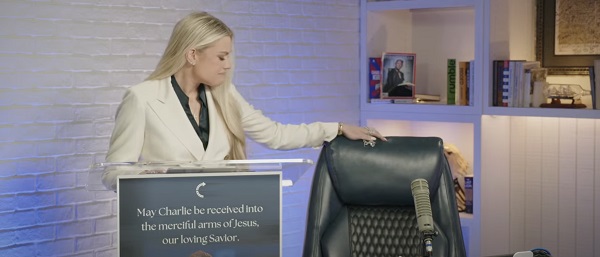
 Daily Caller2 days ago
Daily Caller2 days ago‘You Have No Idea What You Have Unleashed’: Erika Kirk Addresses Supporters For First Time Since Kirk’s Assassination
-

 Censorship Industrial Complex1 day ago
Censorship Industrial Complex1 day agoDecision expected soon in case that challenges Alberta’s “safe spaces” law
-
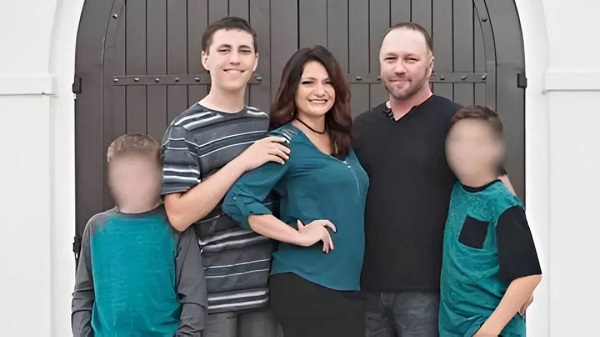
 Crime2 days ago
Crime2 days agoFormer NYPD Inspector Shares What Family Of Alleged Charlie Kirk Assassin Feared Before Turning Him In
-
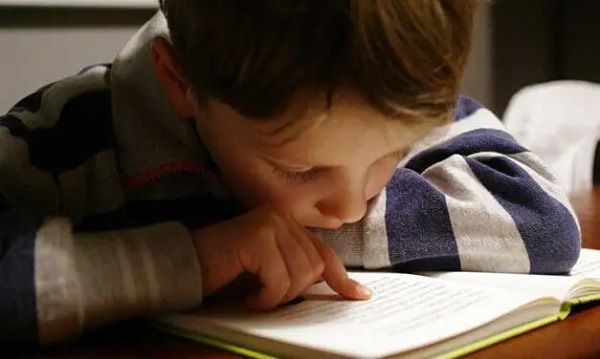
 Education1 day ago
Education1 day agoOur kids are struggling to read. Phonics is the easy fix
-
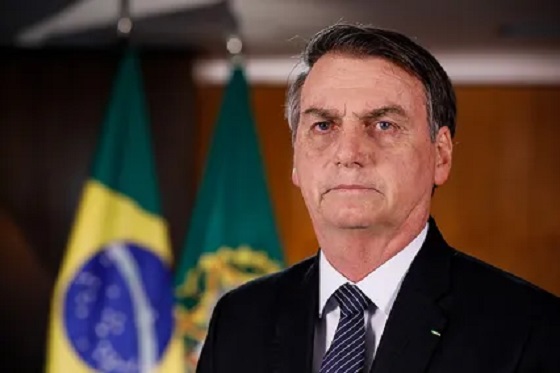
 International1 day ago
International1 day agoBrazil sentences former President Bolsonaro to 27 years behind bars
-
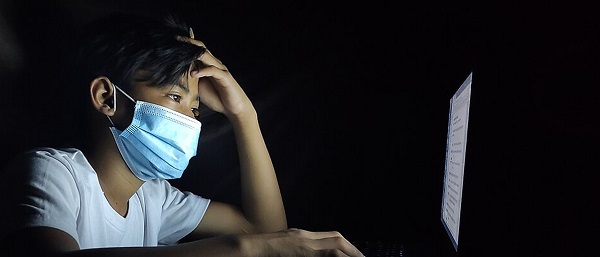
 COVID-1917 hours ago
COVID-1917 hours agoWhy FDA Was Right To Say No To COVID-19 Vaccines For Healthy Kids
-

 Energy17 hours ago
Energy17 hours agoTrump Admin Torpedoing Biden’s Oil And Gas Crackdown



